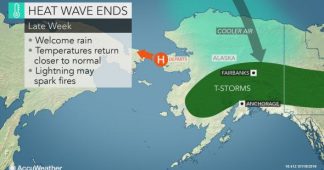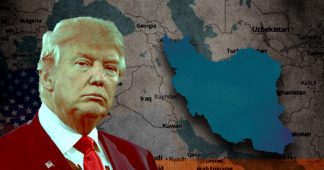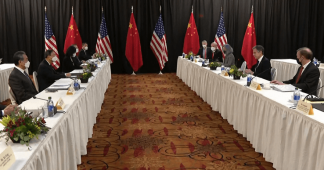June 28, 2021
In 1968, an extraordinary set of circumstances put a pair of ambitious young men in the U.S. Senate representing Alaska, each replacing an icon of the previous era, both to shape the subsequent development of the state.
And they hated each other.
One of those young men was Ted Stevens, who went on to serve 40 years in the Senate, and whose towering legacy includes today’s Alaska-style socialism, with the economy’s ongoing dependence on federal spending.
The other young man was Mike Gravel, who died on Saturday. Gravel served 12 years in the Senate and left Alaska for good after an ignominious electoral defeat in 1980. His Alaska legacy is important, as well, but in many ways he represents a path not traveled.
Stevens and Gravel were not far apart in their goals for Alaska. Both wanted the trans-Alaska pipeline built, a generous settlement for Alaska Native land claims and a pro-development resolution to the conservation lands battle that dominated the 1970s.
But in personality, outlook and tactics, they were opposites. One was a pragmatist and plodder, the other an idealist and a showboat. One brought home the bacon, funneled money to the military and didn’t try to rock the boat. The other dreamed of stopping war, building a self-sustaining Alaska economy and fundamentally changing American democracy.
Continue reading at www.adn.com
Mike Gravel RIP: Watch the Senator’s Stunning 2007 Speech on How He Made the Pentagon Papers Public
Mike Gravel, former presidential candidate and Democratic U.S. senator from Alaska, has died at the age of 91. We look at how, in the 1970s, Gravel was fiercely opposed to the Vietnam War and the draft and played a seminal role in the release of the Pentagon Papers, the 7,000 pages of top-secret documents outlining the secret history of the U.S. War in Vietnam. While the papers were leaked to The New York Times and The Washington Post, Gravel spearheaded a one-man push on June 29, 1971, to read some 4,100 pages of the document into the Congressional Record, so that it would become public record and then anyone could read it and publish it. We feature an extended speech by Gravel in 2007 describing in detail how he received the Pentagon Papers from journalist Ben Bagdikian, who in turn had gotten them from Pentagon Papers whistleblower Daniel Ellsberg. Gravel told the extended story during an event moderated by Amy Goodman at the 2007 Unitarian Universalist Association’s General Assembly.











